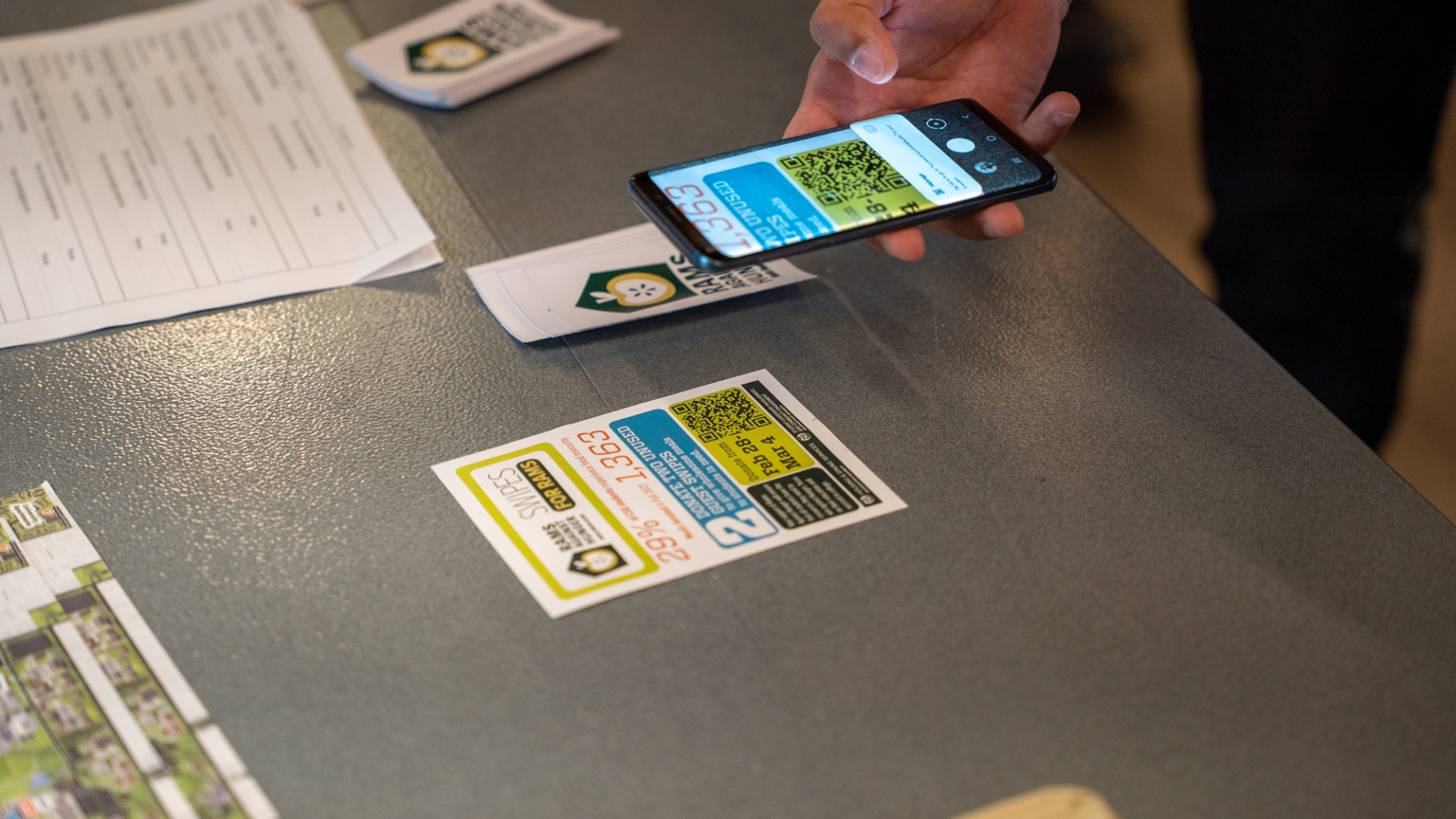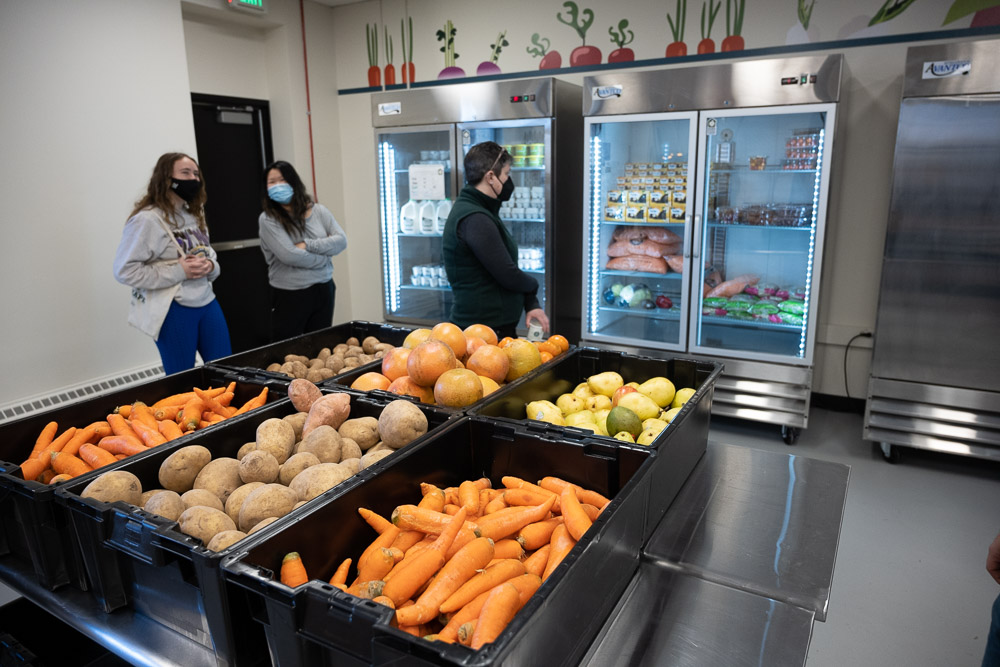
Swipes for Rams program allows students who currently have meal plans to donate up to two of their unused guest passes, essentially redirecting meals that might otherwise be wasted, to CSU students experiencing food insecurity.
Food insecurity is a big deal on college campuses, with Colorado State University being no exception. Recent data collected in the RealCollege 2021 Institutional Report for CSU shows that 29% of our students face food insecurity. These numbers are right in line with national averages among institutions of higher education across the nation.
Contrary to popular belief, food insecurity is not necessarily about hunger. According to the hunger-relief organization Feeding America, hunger refers to a personal physical sensation of discomfort, while food insecurity refers to a lack of available financial resources for food at the household level. This translates to a lack of access to healthy, nutritious foods, and often results in choices of cheaper, highly processed, less nutritious options – often fast foods with lots of added sugars, refined grains and added fats.
For students, the detrimental effects are real. All these issues compound on one another to promote poorer health and education outcomes, leading to lower GPAs, lower attendance and completion rates. Stress and mental fatigue go hand-in-hand with worrying about the next meal, according to Michael Buttram, basic needs program manager for CSU’s Student Leadership, Involvement, and Community Engagement (SLiCE) office. “It’s hard to concentrate on your classes and show up for extracurriculars when your basic needs aren’t being met,” he said.
CSU Residential Dining Services is well aware of these impacts and is combating the issue head on through the support of several Rams Against Hunger initiatives that directly assist our campus community. These include helping students donate their unused guest meal swipes to the RAH Meal Swipes Program, sending text messages to students and staff notifying them to pick up food when it is left over from Housing & Dining Services catered events, and donating leftover/surplus food to the Food Pantry.
“At our core, we are a service organization committed to feeding students, staff, and guests,” said Liz Poore, director of Residential Dining Services. When we help others succeed academically, we make CSU a success. Our partnership with SLiCE — whether it is leftover food donations picked up daily for the new Food Pantry or allowing our resident students the chance to donate bonus meals to RAH — is critical to understanding that we are so much more than just the food we serve on a university campus. We are a diverse and inclusive community of individuals who create food and dining opportunities to make all of CSU better one meal at a time.”
Buttram emphasizes that all these efforts through the RAH/RDS partnerships, individually and collectively, play an important role in student success.
Meal Swipe program – Swipes for Rams program
Swipes for Rams program allows students who currently have meal plans to donate up to two of their unused guest passes, essentially redirecting meals that might otherwise be wasted, to CSU students experiencing food insecurity.
- RDS and SLiCE have partnered on this program since 2017.
- 1,902 swipes were donated from on-campus students during the one-week donation period, with 1,013 in just one day through solicitations at the dining centers.
- 587 students are benefiting from the Meal Swipe program this semester.
Food donations to CSU RAH Food Pantry

The new Rams Against Hunger Pantry officially open its doors on Jan. 29. Photo by John Eisele/CSU Photography
The new permanent Food Pantry, located in the General Services Building on campus, helps support students, faculty and staff experiencing food insecurity. RDS donates wholesome leftovers that have not been eaten or not placed out for self-service. Prior to COVID, RDS donated leftovers to the Food Bank, but now they are instead able to support families and students at CSU.
- RAH picks up donations from RDS once a week.
- Donations consist of leftovers such as meatloaf or a pan of beans, which are frozen and packaged for convenient transport. The portions are easy for a family or household to take home and reheat.
- RDS also donates perishable items, including a variety of fruits, vegetables, breads and dairy.
Ram Food Recovery
A program that supports CSU students and employees experiencing food insecurity by sending text alerts for food leftover from catered events within HDS – reducing waste and helping the community at the same time.
“Vita Prentiss (Catering & Conference Manager for RDS) and her crew go the extra mile to make these sure meals are served in welcoming and dignity affirming settings, making this program one of the best responses we have toward reversing the trend of food insecurity,” said Buttram. “By nature, the food service industry can have a substantial amount of waste. This year, after returning to (mostly) normal operations, it seems like more of the CSU community has been informed about this resource.”
- Started in 2018 through Eco Leaders, ASCSU and the Zero Waste Team, and came under the RAH umbrella in 2019.
- Ram Food Recovery events occur after most buffet-style catering events, typically one-to two- times per week.
- A modified version of RFR continued through COVID, during a period with absolutely no events. RDS dedicated a number of meals each week to RFR, which could be picked up by students and staff who had signed up to receive the text messages.
Buttram notes that we live in a country of enormous surplus. “People often view food insecurity through a scarcity lens. That is a false narrative,” he said. “We have more than enough to feed everyone in our population. It is a matter of designing food systems that ensure equitable access to healthy and nutritious options for everyone.”